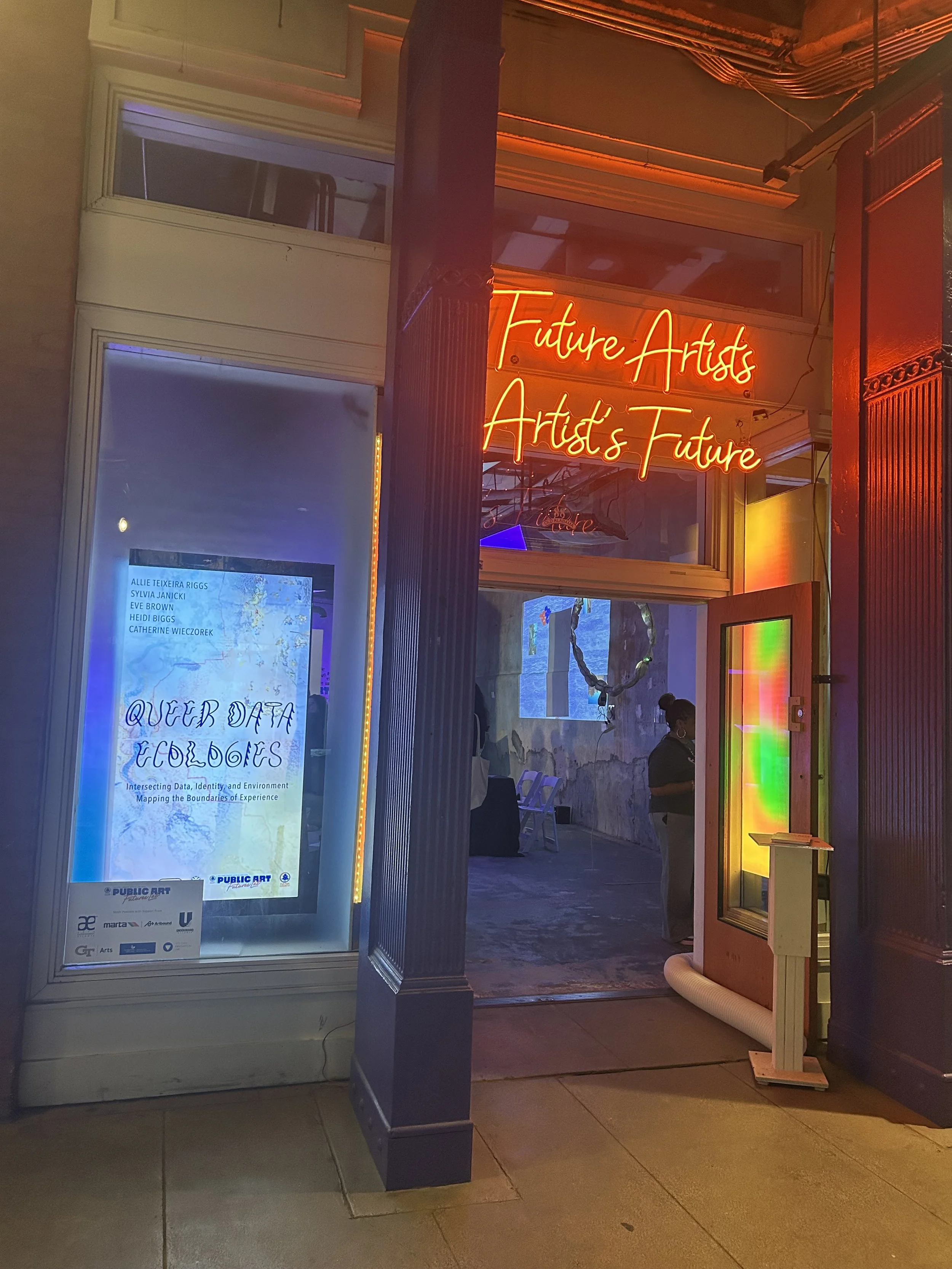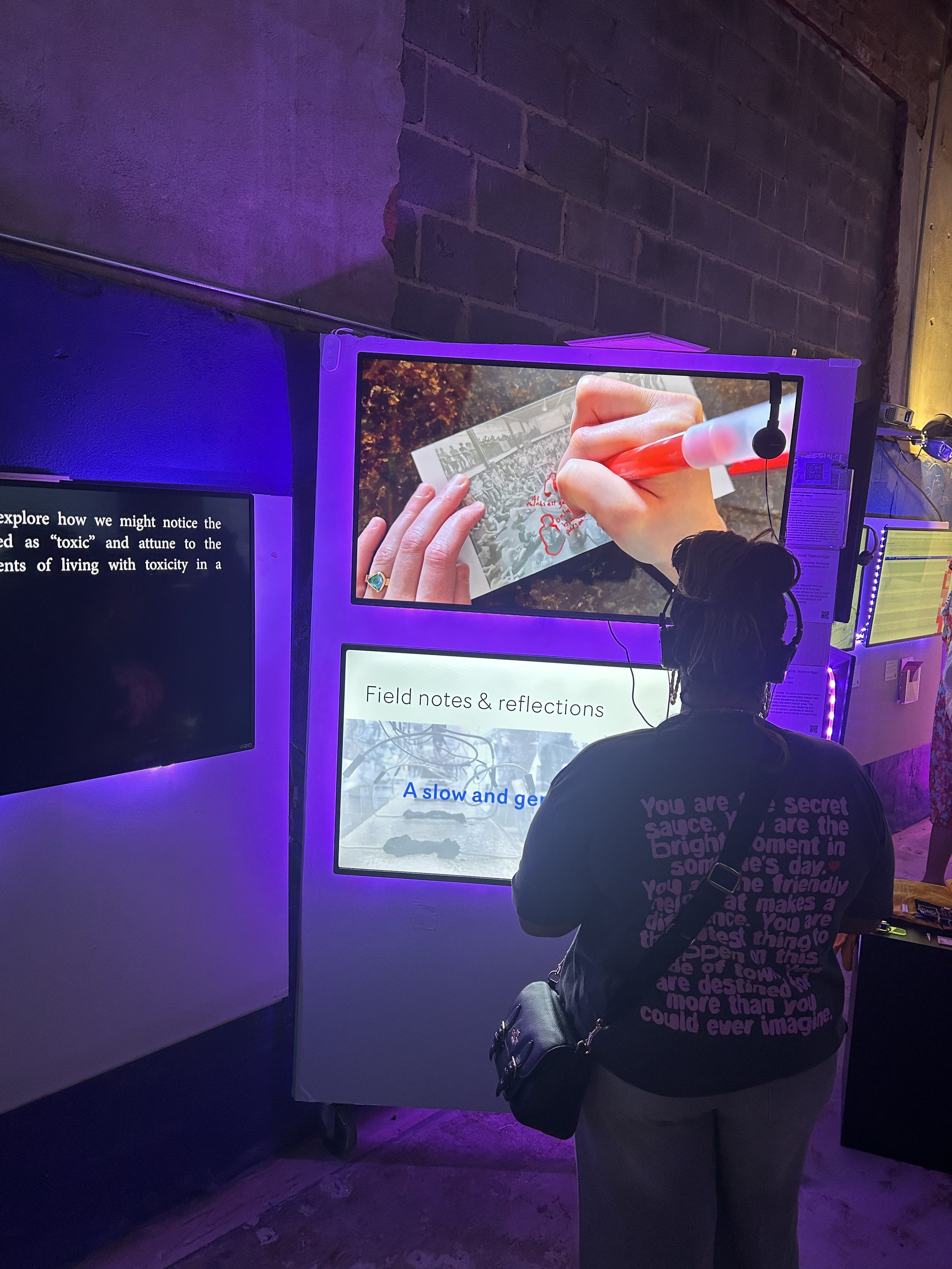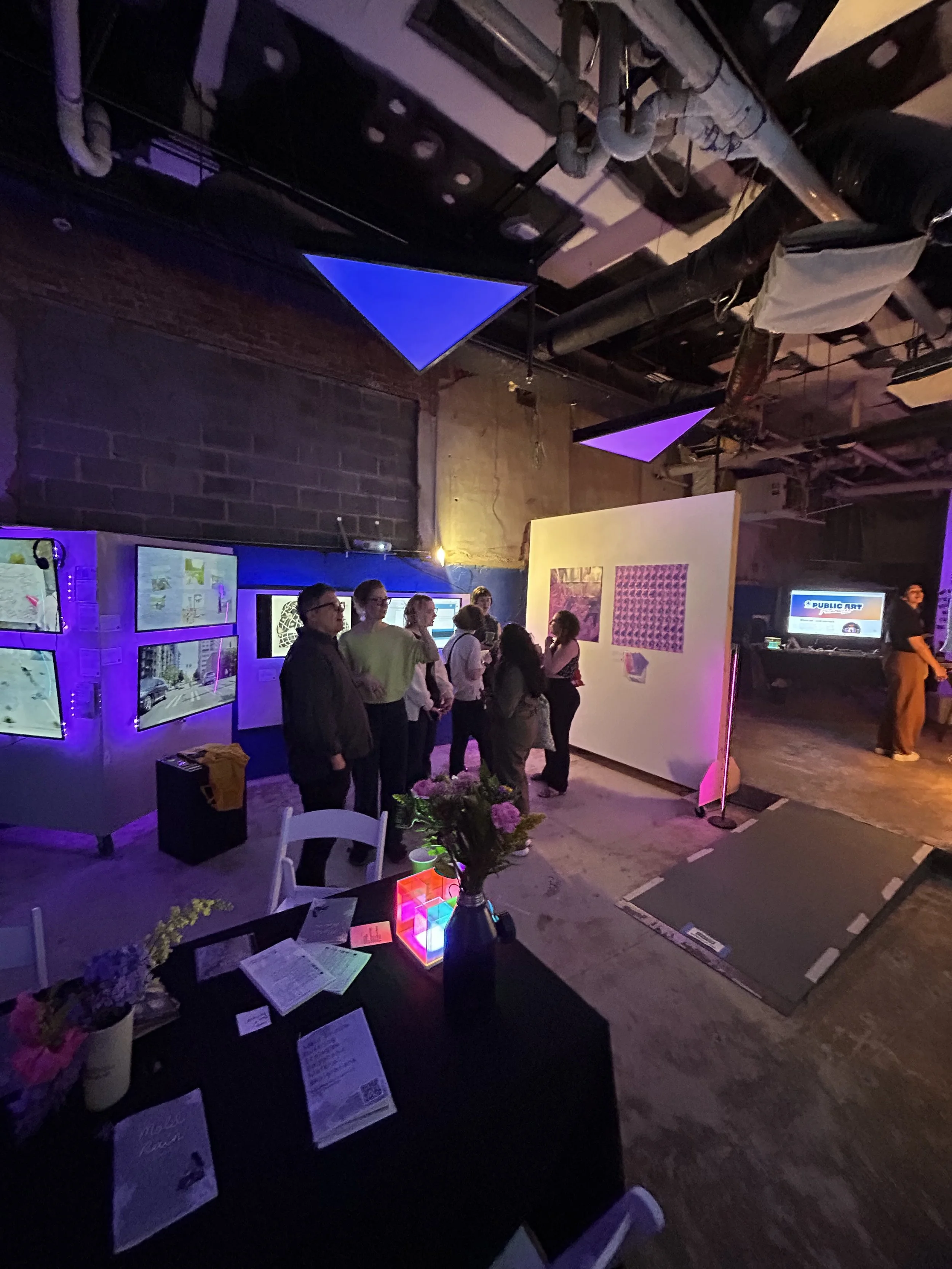The Exhibition at the Intersection of Disability, Ecology, and Queerness
The Queer Data Ecologies exhibition, which was on view at the Public Futures Lab, brought together five local researchers and artists who explored the intersection of queerness, disability, and environmental data amid ecological crises. The show, curated by Alexandra (Allie) Teixeira Riggs, a PhD candidate in Digital Media at Georgia Tech, foregrounded embodied experiences and alternative ecologies through speculative design, data storytelling, and site-responsive works.
Contributors included Sylvia Janicki, Eve Brown, Heidi Biggs, and Catherine Wieczorek—each offered intimate, layered reflections on how we move through and are shaped by our environments. The pieces ranged from embodied maps of bike trips to textile ecologies, data work informed by chronic illness, and mythologies of domestic space. Mold, pollution, and extreme heat—localized and felt—emerged as central actors in these queer environmental narratives. "In the show, we each drew from embodied, felt experiences to nurture alternative, queer, relationships to our local environments and data. We started from data that can often be difficult to conceptualize—pollution, sea levels rising, molds, animal populations—and engaged with these on very intimate, personal, and material levels," said Riggs.
The exhibition wove queer and disabled ways of knowing with tangible artifacts, speculative tech, and visual storytelling. Visitors were invited to sit with murkiness, contradiction, and the more-than-human in a space that resisted binaries and championed situated knowledge. Supported by the Atlanta Interdisciplinary AI Network and Subsume Studios, Queer Data Ecologies offered a poetic, urgent call to reimagine what environmental data could be—and who it was for.

















